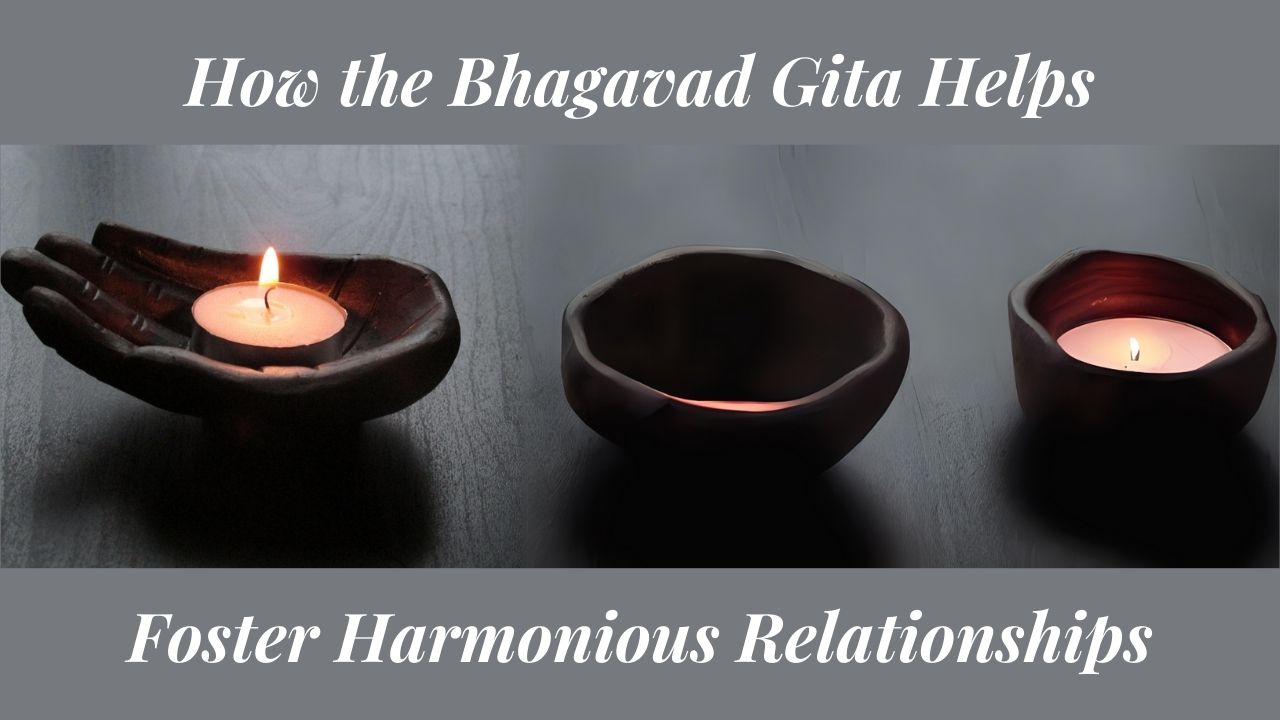For a good part of my life, I was confused about why people react indifferently or adversely, despite the fact that they were treated well. I assumed that as a universal law if you treat someone well, they would treat you well in return or particularly, return the favor when you needed help. Let me illustrate with an incident – A friend who was a struggling entrepreneur was visiting from India; so I offered him my place to stay upon request as well as other assistance during the times he visited. Years later, I was visiting the town where my friend had set up shop, and I rang him up expecting that he would offer the same hospitality that I had once offered. But I was quite disappointed when he showed no interest in meeting. This incident bothered me for some time, until I came across a verse in a class that I was attending about the philosophy of the Bhagawat (Bhagavad) Gita.
This verse from Chapter 3 (verse 28) of the Bhagavad Gita commentary written by Swami A. Parthasarathy helped me understand and explain where the problem lay:
तत्त्ववित्तु महाबाहो गुणकर्मविभागयो: |
गुणा गुणेषु वर्तन्त इति मत्वा न सज्जते ||
Which translates to “But he, O Mahabaho, with true insight into the distinctions of gunas (qualities) and actions, knowing that gunas (as senses) abide in gunas (as objects), is not attached.”
The constitution of each human on this planet is different – a constitution which is formed through their personal experiences over a life time; this constitution or essential human nature, is what drives people to act in a certain way. Since the experiences of each human on this earth is unique to his or her own background, each will respond and act differently to a given situation. If we accept each person for who or what they are, then we will have no problem with them. But if we expect the person to operate in our terms, then the only outcome will be disappointment.
With due reflection on this uniqueness of human nature, I better understand the actions of my entrepreneur friend and by extension, actions of family members, friends and even colleagues at work.
Gautamji (who teaches the Bhagavad Geeta and Vedanta philosophy) explains this further by using the concept of “the chronology of action” in his lectures. The starting point of any action is Vasana, which is one’s nature; Vasana produces the thought of action, which in turn creates a desire to act, and results in a specific action. The chronology of action looks like this:
Vasana -> Thought -> Desire -> Action
The mistake that we often make is that we treat all humans as one collective i.e. assume that all human beings are the same and that they will respond similarly in a given situation. To draw an extreme comparison, most people will pat a cat or a dog but not a poisonous snake. We don’t think twice before caressing the pet, but we know to keep our distance from a poisonous snake.
So, why do we then expect people to behave the same? If we know when to pat a cat but not a snake, then why do we not assess humans when we deal with people? Assessment is the first key step to understanding people and learning to relate to them. It helps us avoid errors in judgements, as well as removes false expectations and future disappointment. Understanding the people in our lives helps us successfully manage our relationships in a mutually beneficial manner.
If you would like to know more about the Gita classes taught by Gautamji, register here or visit the website for more information. The Gita classes are free, available live and recorded online, and open to anyone interested in learning more about this ancient wisdom.
“The blog above are thoughts of a student of the online weekly lectures”
Continue reading Blog

